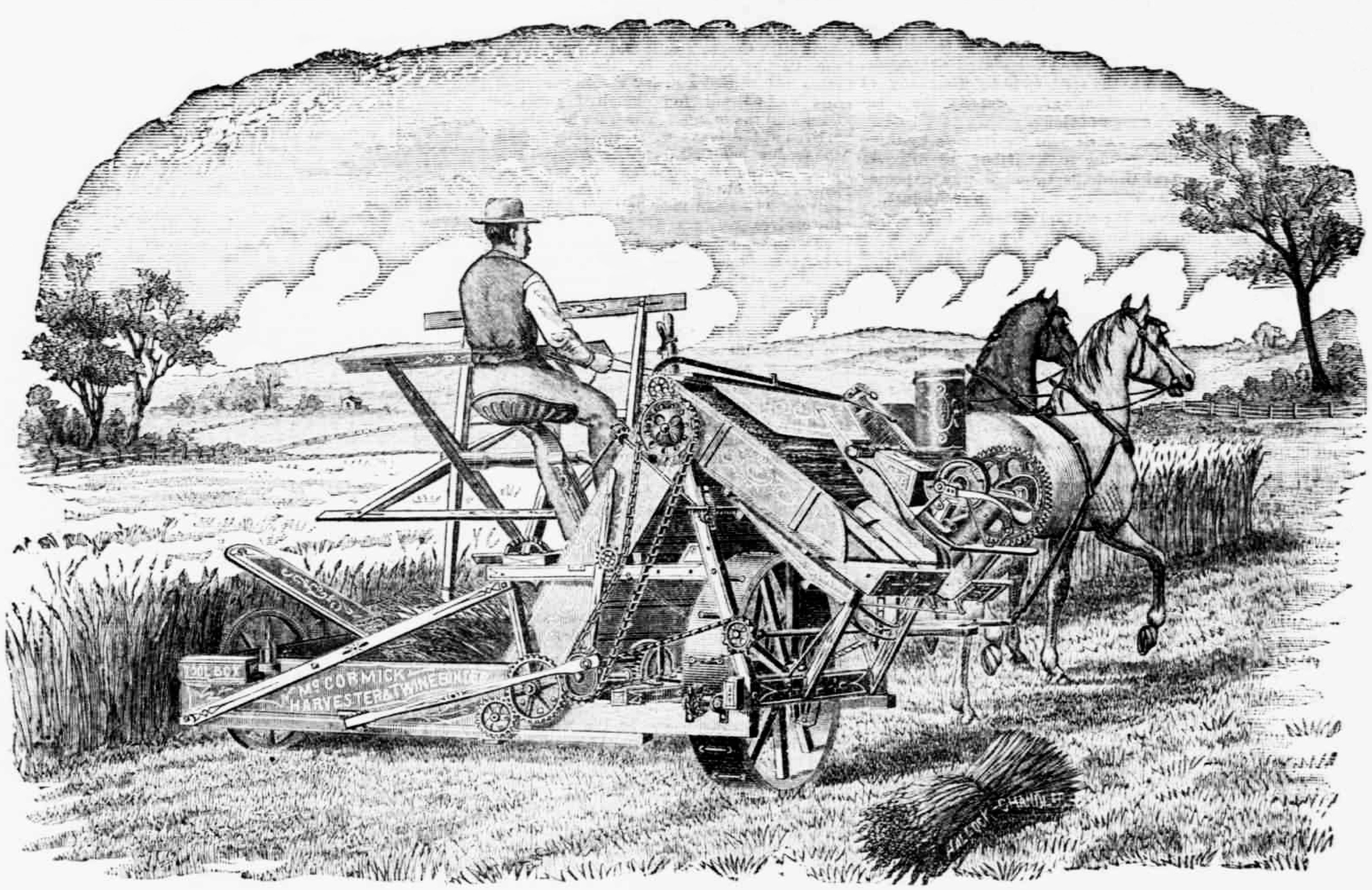Recently in class, we have been studying the insidious effects of the Industrial Revolution (new inventions and technology...especially the cotton gin, the idea of interchangeable parts, mass production, etc.) of the early 1800's on the exponential growth of slavery.
 |
| "McCormick's" Reaper |
In 1858, the U.S. Attorney General (defending the U.S. Patent Act of 1793 and 1836 which barred slaves from obtaining patents because they were not U.S. citizens) - Jeremiah S. Black - said that because slaves were considered property, their ideas and inventions were the property of their masters. In other words, many slaves invented new technologies that are not credited in the so-called history books...
"Famous" Slave Inventors:
Sam- Sam and his father invented a comb that removed cotton seeds from cotton fiber. Eli Whitney took this invention and developed a mechanized cotton gin.
Jo Anderson- Jo helped his master Cyrus McCormick create and build the famous reaper...Jo has been acknowledged by the McCormick family for his many contributions to the reaper.
Ned- Ned invented the cotton "plow and scraper" which led to his master to argue (in favor of slavery), "the master is the owner of the fruits of labor of the slave, both manual and intellectual...when did a free Negro ever invent anything?"
Benjamin Montgomery- Benjamin (belonging to the Jefferson Davis family) invented a ship propeller (that cut into the water at different angles) that would help river boats to navigate quicker in order to deliver products more quickly from his master's store. Sadly, this propeller helped the Confederacy during the Civil War.
Benjamin Bradley- Benjamin worked in a printing office and at the age of 16 began collecting junk scrap metal, modeling it into a small ship. Eventually, he built/ tinkered with a working steam engine for his "ship"...and so the steam engine was born. Bradley eventually worked at the Annapolis Naval Academy, where he became a classroom assistant in the science department. At the Naval Academy, he developed a steam engine large enough to drive the first steam-powered warships in the 1840's.
Our next invention?!?


No comments:
Post a Comment